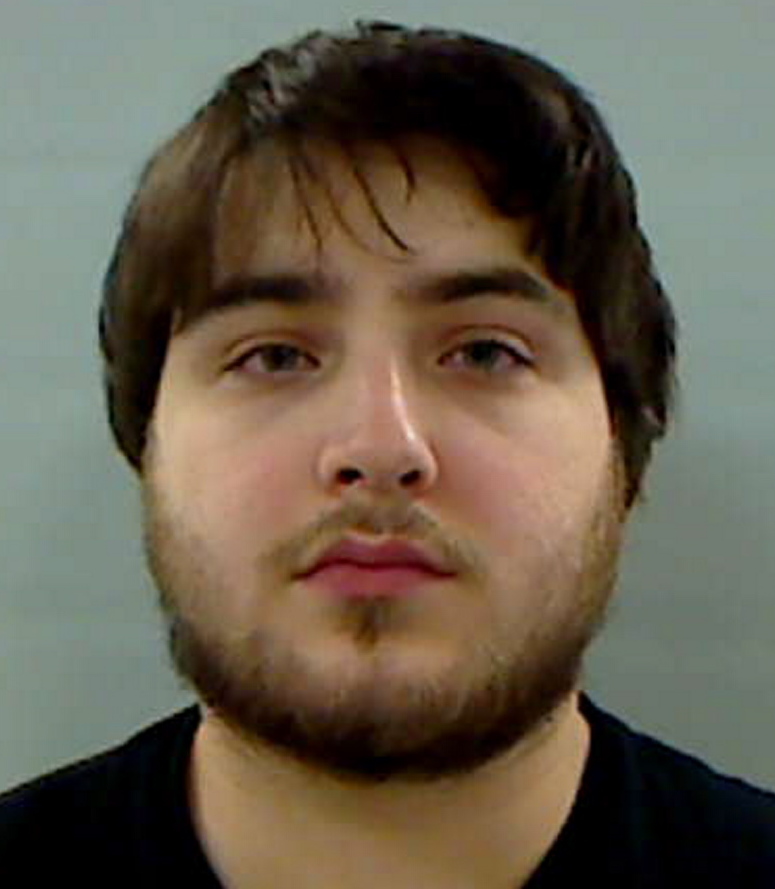The fate of a severely injured Augusta infant is at the heart of a court case in which the state wants a do-not-resuscitate order to remain while the mother is fighting to have it lifted.
Aleah M. Peaslee was 6 months old when she was rushed to the hospital on Dec. 21, 2013, with injuries doctors found were consistent with being shaken.
Aleah’s father, Kevin M. Peaslee, now 22, is accused of shaking her in the family’s Capitol Street apartment and has been indicted on aggravated assault charges. Aleah’s mother, Virginia Trask, then 17, was at work at the time the injuries occurred, according to investigators.
The Maine Supreme Judicial Court now is being asked to decide whether a judge in Augusta District Court correctly gave the state the authority to overrule the baby’s mother’s wishes and consent to a do-not-resuscitate order for the baby, who continued to live long after a breathing tube was removed and much longer than doctors had expected.
Maine’s high court has invited interested parties to submit briefs on the issue as well, and the case also has attracted national attention through a Fox News story.
The appeal is being brought by Trask through attorney Scott Hess. Hess maintains that Trask’s parental rights were not terminated, so only she, not the state, should make the decision about Aleah’s fate.
“This is a very important legal issue for all parents, which will be decided in the courts,” Hess said Thursday via email. “My client is very brave for standing up for her rights and those of her child. However, she also is asking for privacy and dignity for her daughter and hopes that request will be respected. She does not have further comment at this time.”
Aleah is living in a foster home, and the mother has visitation rights but has used them little, according to the state’s brief. A district court judge found that the baby “suffered devastating neurological injuries,” and “as a result of those injuries she is unable to suck or swallow. She will never be able to walk, talk, see, or hear.” It also says Aleah “exhibits a high-pitched ‘neurological cry’ 80-85 percent of the time” and appears to be uncomfortable or in pain.
The legal brief by the state’s attorney says Aleah ceased breathing at some point and suffered a loss of oxygen to her brain and is currently a “spastic quadriplegic.”
“Her ‘severe diffuse irreversible brain injury’ will cause Aleah to ‘die prematurely from her injuries, and she will never be able to function beyond an early infantile level,'” according to the legal brief filed by Assistant Attorney General Nora Sosnoff, representing the state Department of Health and Human Services.
Case prosecutors initially said Aleah was blind and her brain damaged as a result of the shaking incident, but Peaslee’s attorney disputed that claim and said the description of the infant’s injuries had been exaggerated.
District Attorney Maeghan Maloney said previously that on Dec. 21 Peaslee was driving with the baby in the car when a police officer pulled him over for failing to stop at a stop sign. The officer saw the baby was in distress and took them to a nearby fire station for medical help. The baby then was hospitalized.
Sosnoff asks that the Maine Supreme Judicial Court leave the decisions by Judge Valerie Stanfill in place. Stanfill found that Aleah was in jeopardy and gave the department the authority to make medical decisions for the baby. Sosnoff’s brief says the child spent 11 days in a coma and physicians then planned to remove her breathing tube and recommended a do-not-resuscitate status.
DHHS, the parents, other family members, friends, social workers and doctors agreed at that time to the do-not-resuscitate order. When Aleah continued breathing, however, the parents revoked it, Sosnoff noted.
Sosnoff said the district court judge found that “neither parent can be counted on to be physically or emotionally available to make the necessary informed decision when needed” for Aleah, and so provided the state authority to make the decision.
The briefs filed in the supreme court do not name the mother or the father, referring to the baby only by her initials.
Four groups have joined together to file a friend of the court brief in the case, arguing that the district court “erred by failing to engage in a meaningful federal constitutional analysis, instead trumping (Aleah’s) mother’s parental rights and (Aleah’s) own right to life in the name of what is perceived to be (Aleah’s) ‘best interest.'”
That brief was filed by Catherine Glenn Foster, of the Alliance Defending Freedom, and Portland attorney David Crocker on behalf of the Christian Civic League of Maine, Christian Medical & Dental Associations, Concerned Women for America and the Roman Catholic Diocese of Portland. Dave Guthro, spokesman for the diocese, would not comment on the case beyond what was contained in the brief.
The four groups argue that “the rights to live and to parent are fundamental to American and Maine law, tradition, and society, and are implicit to ordered liberty.” They ask the state Supreme Court to reverse the lower court’s decision.
The Maine Supreme Judicial Court is scheduled to hear oral arguments in the appeal Sept. 23 at the Cumberland County Courthouse.
Aleah’s father, Kevin Peaslee, now of Windsor, is free under bail conditions that ban him from contact with Aleah and her mother. He was involved in the original discussion of the do-not-resuscitate order but is no longer, said James T. Lawley, the attorney representing Peaslee on the criminal charges.
Peaslee has pleaded not guilty to two charges of aggravated assault and a third charge of assault.
Send questions/comments to the editors.



